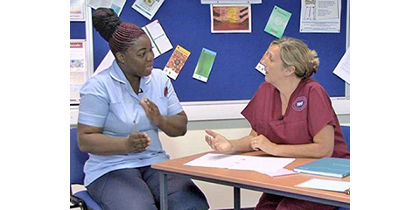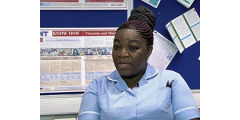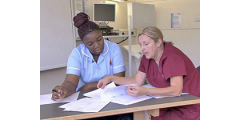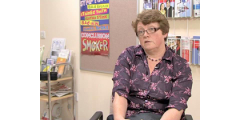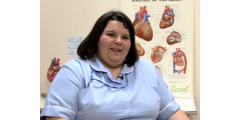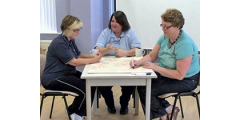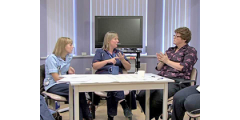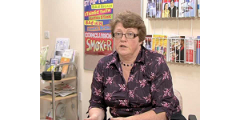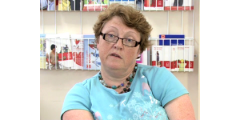Negotiating learning outcomes and opportunities on a practice placement
January 26, 2010
Video >> Alison: “If you look at basically nursing, or I suppose any professional group then, you’ve got to identify your clients needs, which is your assessment process. And then you’ve got to put a plan of care, or action in to meet those needs and then, you’ve got to be able to evaluate it, …
Transferring learning between placements
Video >> Alison: “The students are all used to working in hospital settings or institutional settings, and this is their first time out and about, working with clients in their own homes, or clients coming in from the community for rehabilitation. And to them it’s almost like, well these are Specialist Nurses, I can’t do …
Verifying a student’s learning as part of staged progression on placement
Video >> Pam: “I think people have a possible idealistic view of what nursing is really about and then the placement actually teaches them what it really is about. And I think without a placement of any kind, without any practical experience, I don’t think as a qualified Nurse, you would be able to function or …
Placements in Nursing: academic, mentor and student expectations
Video >> Alison: “Fifty percent of the nursing courses are practice which requires a range of practical placements to give students lots of different experience and, for each placement, they need a designated mentor who has that professional qualification.” Annie: “I think doctors are very, I think a lot of their training is very physically …
Becoming a professional practitioner
Video >> Jo: “Within, like, nursing, it’s all evidence based, isn’t it? So, you know, to justify what you do, you have to learn and understand why you’re doing it and that’s how I see it, so if I approach something and I’m doing it, then I’m questioning myself why I’m doing it, why is …
Goalsetting for learning in stages on placement
Video >> Alison Clark: “It gives the students a clear goal of where they’re supposed to be because they’ll go out and watch a practitioner do the whole package for a patient and they might only be able to contribute part of a package, but they need to see that’s valuable. So if they go …
Modelling professional practice for students on a work placement
Video >> Learning set meeting Alison: “So your portfolio, in some ways, will be very different, Jenny, to Jo’s, because you’ve had a much more observation and insight experience, lots of visits, learning to appreciate what factors affect the patient with neurological problems in the community, and that’s what I would expect to see in …
Giving constructive feedback and setting clear targets
Video >> Pam: “Right at the beginning we sit down, we work through what they – the goals they want to achieve and how they’re going to achieve them, and how they’re going to achieve the competencies, and basically today is to make sure that they are going to achieve their goals.” Alison: “They’ll point …
A mentor’s role in placement learning
Video >> Alison Clark: “The role of the mentor is to provide dedicated clinical supervision to that student, to keep them safe in practice but also that they learn those core skills and the core knowledge that makes them safe to be practitioners once they’re qualified.” Pam Winn: “I think it’s my job to make …
The academic’s role in supporting placement mentors
Video >> Alison Clark: “Well, the students are given an assessment of practice record, which has a range of proficiency statements that the Nursing and Midwifery Council expect them to achieve over a three year period. The mentors then, have to interpret that in the practice setting, and then they make the decision how much …

